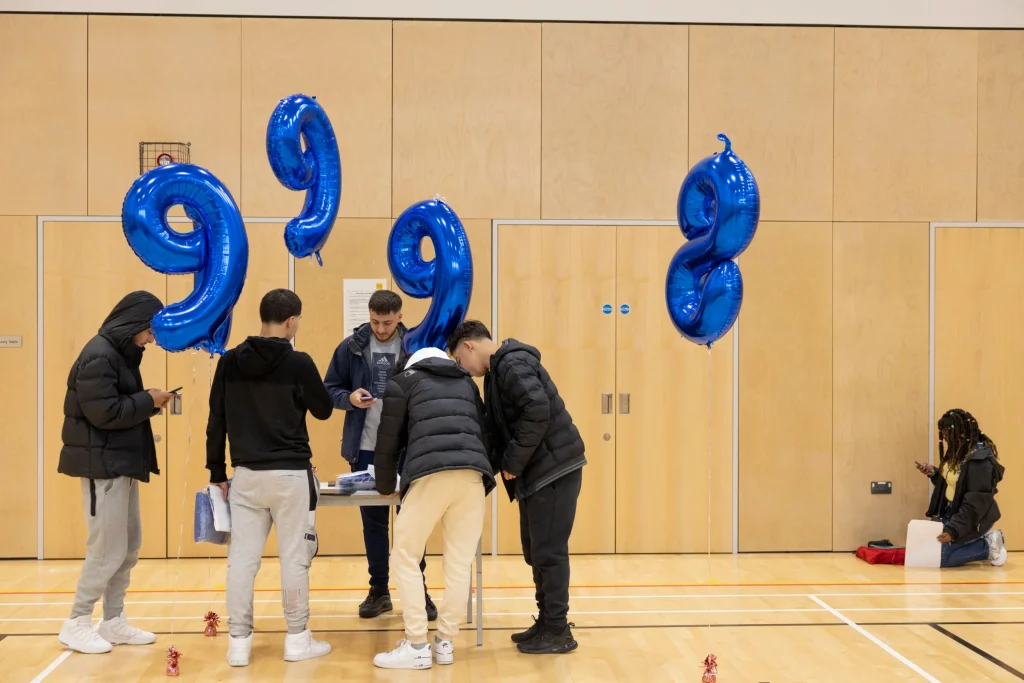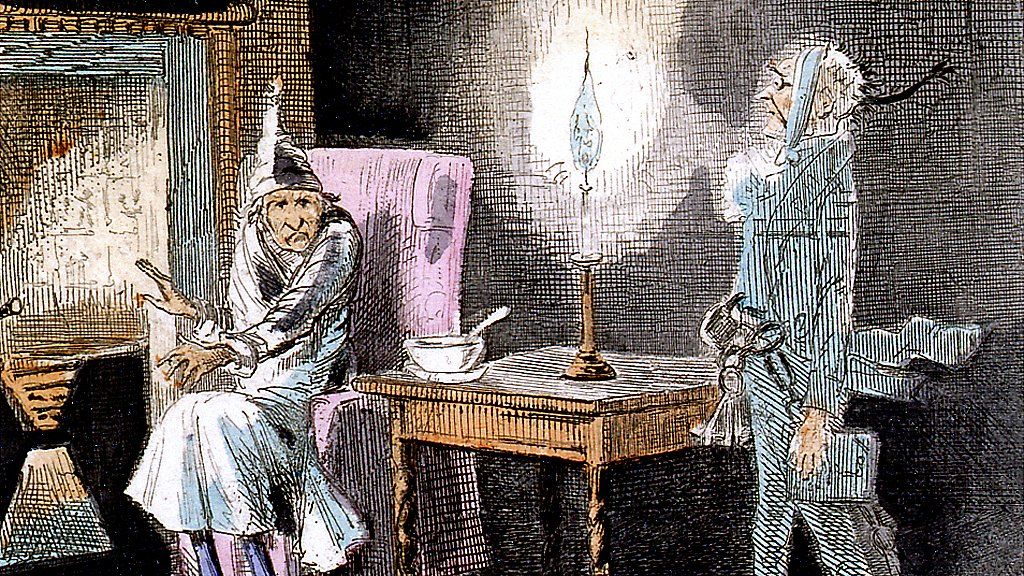Author Archives: Mark Richards
-
Becoming a Senior Leader in Education
Leave a CommentShould I apply for a senior leadership position in a school?
It’s a question that many teachers working in schools ask themselves at some point. The correct answer to the above question will depend on the individual, of course – but if it is a question that has come into your head recently, you’ll want to make sure that you get the answer to it right. So, let’s look at some of the pros and cons of becoming a senior leader in education.
Becoming a senior leader: an opportunity to make a difference
It’s kind of why you became a teacher in the first place, isn’t it? The opportunity to make a difference in the lives of children and young people is one of the privileges of the profession.
And the opportunity to make a difference needs to be at the forefront of your mind when you are considering whether to try to become a senior leader or not.
Let me explain… as a ‘classroom teacher,’ you make a difference for the pupils you teach. Your classroom is your kingdom, and it is between those four walls that the magic is made.
The thing is that the impact you can have on pupils is limited to those four walls.
When you are a middle leader, such as a Head of Department, you now have an opportunity to have an impact on a wider cohort of young people – and the step up again to senior leadership will take your responsibility and potential impact on a whole-school level.
If you want to become a senior leader, you need to demonstrate that you have had an impact at a whole-school level. Taking on a whole-school project or initiative is an excellent way to do this. Getting more involved on a departmental basis is also a great idea. You need to show that you have an interest in departmental and whole-school issues.

Is a role as a Senior Leader in Education what you really want?
Perhaps most importantly you need to be sure that senior leadership is the right move for you. Yes, the desire to have a greater impact across the whole school is a big attraction – but do you know what the role will entail?
Generally, the people who move into middle leadership and then senior leadership do so, initially, because they are some of the most promising and best classroom teachers in a school. Promotion seems like a natural step. But the further up the management ladder you go, the less time you will spend teaching in the classroom.
The prospect of teaching kids is why we all entered the profession and what we all really love. You’ll be doing a lot less of it when you become a senior leader.
Also, bear in mind that the best classroom practitioners don’t always make the best leaders and managers. In fact, there are quite different skill sets needed.
Apply for the right position for you
Once you have decided that senior leadership is the right move for you, you shouldn’t just apply for any role as a senior leader in education that you see. Look carefully at the job description and what the role would involve. Make sure that it matches both your interests and your skills.
Once you’ve got there – what can you expect?
Senior leadership can be very tough and there’s always a lot of pressure – but it’s also incredibly rewarding. It really feels like you are shaping the direction a school is moving in – because you really are! That is a real privilege.
Subscribe to the TutorRight blog for more advice about teaching and education in general. -
Everything you need to know about the ‘Romeo and Juliet’ GCSE Exam Question
Leave a CommentWith February being the month of romance, it seems appropriate to take a close look at one of the most romantic stories of all time – Shakespeare’s classic tale of ‘Romeo and Juliet’. So, while there’s romance in the air, let’s spread the love with some top tips for how to answer the ‘Romeo and Juliet’ GCSE exam question.
This tragic play, depicting the lives and deaths of two star-crossed lovers, is one of the most loved works in literary history.
And, of course, there’s also the little matter of the fact that ‘Romeo and Juliet’ is a text on the GCSE English Literature exam.
The ‘Romeo and Juliet’ exam question: What to expect?
First and foremost, let’s deal with the basics. What can you expect on the exam? Regardless of whether you are studying the AQA or the Eduqas syllabus, the demands of the questions are very similar. There will be a short extract from the play printed on the paper. The question will then ask to focus on a particular character or theme in the given extract.
The AQA exam will then ask you to write about the same character or theme in the whole play. For example:
Starting with this conversation, explore how Shakespeare presents the relationship between Romeo and Juliet.
Write about:
- how Shakespeare presents their relationship in this conversation
- how Shakespeare presents the relationship between Romeo and Juliet in the play as a whole.
The Eduqas exam will also ask you to focus on a character or theme in the extract, but the second – separate – the question could ask you to write about another aspect of the whole play. For example:
Read the extract on the opposite page. Then answer the following question:
Look at how Juliet and the Nurse speak and behave here. How do you think an audience might respond to this part of the play? Refer closely to details from the extract to support your answer. For which of the male characters in Romeo and Juliet do you have the most sympathy? Write about how Shakespeare creates sympathy for your chosen character.
So, how do you approach the task?
Focus on what the question is asking you to do
It sounds obvious, but one of the biggest mistakes students make is not focusing on what the question is asking them to do closely enough. Many simply write down the main things that they can remember about the play; choose a few quotes to back up the points they have made; and make the occasional comment about Shakespeare’s language.
Of course, some of all that will be relevant but certainly not all of it.
You need to make sure your answer remains totally focused on the demands of the question, from the outset.

Take this example:
Starting with this conversation, explore how Shakespeare presents aggressive male behaviour in Romeo and Juliet.
Write about:
- how Shakespeare presents aggressive male behaviour in this conversation
- how Shakespeare presents aggressive male behaviour in the play as a whole.
You need to come up with a statement – an argument – that sums up the main points you are going to make in your answer, such as:
‘In the extract and throughout the play as a whole Shakespeare presents male aggression through every male character – with the exception of Benvolio. This aggression is one of the main reasons why things go wrong during the play of Romeo and Juliet.’

Using Quotes
One thing you can be sure of is that you will be expected to use quotes from across the play in your answer. Have a few saved up about characters and themes. However, there’s a lot to remember so it’s best to keep them short and sweet; easy to remember; and to select ones that say a lot about the story.
‘The Prologue’ – right at the start of the play – is as good a place as any to look: “ancient grudge” shows that the problems between the Montague and Capulet families are deep-rooted and long-standing. Similarly, both “star-crossed lovers” and “death-marked love” show that Romeo and Juliet’s relationship was doomed to end in tragedy from the beginning.
If your son or daughter is struggling with the Shakespeare question, hopefully, this blog will have helped a little bit…
But one of our English tutors would be able to help them even more – with ‘Romeo and Juliet’ and all aspects of GCSE English Language and English Literature. Get in touch for a chat to find out more.
-
GCSE Grades Explained: A guide for parents and students
2 CommentsIn England GCSEs are now graded using a numerical system running from 9-1, rather than A* to G – a system that had been in place since GCSE Grades replaced the old ‘O’ Levels in the late 80s. This has caused – for parents and students alike – a fair amount of confusion. Many ask questions, such as: What do these numbers mean? What is a Grade 9 equivalent to? What is a pass at GCSE?
But, have no fear… TutorRight are here to answer all these questions and more with our handy guide ‘GCSE Grades Explained: A guide for parents and students’.
So, without further ado, let’s get explaining…
When and why were GCSE grades changed?
Before we get started, it makes sense first to explain when and why the GCSE grades were changed.
The new numerical grading was introduced as part of a wider curriculum overhaul carried out by the Conservative government in 2014 by the then-Education Secretary, Michael Gove. It was perceived that too much emphasis had been placed on GCSE coursework. The reformed examination system sought to make the GCSEs more challenging and to make almost all subjects assessed by final exams taken after two years of study. This replaced the old model of assessment which favoured regular assessments through a series of modules.
It was argued that the new numerical scale recognised “more clearly the achievements of high-attaining students.” This is because the additional grades created allow for greater differentiation. Essentially, students can now gain ‘higher’ levels of each grade, instead of simply a standard grade. All exams now contain more extended writing, essay-style questions. It was also explained that the move to numbered grades would make it clear to employers that students had taken the more challenging GCSE.
The new reformed GCSEs were introduced gradually between 2017 and 2019, beginning with English and Maths. By 2020, all GCSEs had adopted the new number graded system.

What are the new grades?
The highest grade is now 9, with 1 being the lowest. The U grade, meaning “ungraded”, remains the same.
The number scale is not directly equivalent to the old letter one. However, the two scales do meet in certain places:
- the bottom of the new grade 7 is equivalent with the bottom of the old grade A;
- the bottom of the new grade 4 is equivalent with the bottom of the old grade C;
- the bottom of new grade 1 is equivalent with the bottom of the old grade G;
- three of the new number grades – 9, 8 and 7 – correspond to the two previous top old grades of A* and A.
What do pupils need to pass their exams?
A grade 4 is a standard pass and a 5 is a ‘strong’ pass. Technically, a student who gets all grade 4s has passed all their exams. However, school league tables are based on the percentage of pupils who achieve a grade 5 or above in English and Maths. Also, bear in mind that many sixth forms and colleges will ask for 5s in certain subjects as an entry requirement – although this varies, and most schools and colleges are quite flexible.
What is a GCSE Point Score?
You may have also heard about something called a ‘GCSE Point Score’. Again, like league tables, these are more of a concern for school leaders than individual students, as they are measurements the government uses to judge schools by. However, just so you know, your GCSE Point Score is basically your average grade over all your GCSEs. So, if you took 10 GCSEs and achieved a Grade 8, 5 Grade 7s; 2 Grade 6s, and 2 Grade 5s, your average point score would be 6.5. With a Grade 5 being a ‘strong’ pass, any point score above 5 would be considered strong.
Finally – in old money – a Grade 7 is the equivalent of a Grade A. A Grade 6 is just above an old Grade B. Grade 5 is between a B and a C; and Grade 4 is equivalent to a Grade C.
Get in touch if you’d like a tutor to help your child reach their GCSE potential.
-
Is tutoring the perfect part-time job for undergraduates?
Leave a CommentHere’s the short answer… ‘Yes!”
And now for the longer – ever so slightly more detailed – answer…
Look, if you’re currently a student at university, we hear you… we feel you… times are tough! Why would you be so stupid to be an undergraduate in the middle of a cost-of-living crisis, ‘eh?
But it is what it is… and you’re in it – hey ho – but there’s no need to worry.
What if there was a great way to make some much needed money AND give your future job prospects a massive boost too?
Well, we may have the answer for you.
Yes, tutoring might just be the perfect part-time job for undergraduates!
Here’s why…
The perfect part-time job for undergraduates – It’s rewarding
The big difference between tutoring as a part-time job and virtually all the other types of part-time jobs that students typically do, is that you’ll find tutoring far more rewarding. Take bar work and the hospitality sector – the hours can be long; the pay is generally pretty poor; and you’re likely to be rushed off your feet during every shift. It can be a thankless task sometimes! Not only that, but there also isn’t a great deal of job satisfaction gained usually from pulling a few pints or waiting on a few tables.
Tutoring, on the other hand, is extremely rewarding. It’s great to see a student go from one level to the next, and watch their confidence grow as a result. Tutors have the rare opportunity to genuinely make a lasting and positive impact in students’ lives. That’s something that will give you a buzz and is something to be proud of – especially when you reflect and realise that the improvements a student has made is down to you!
Tutor when you like – It’s flexible
Finding a part-time job to fit around your studies can be a challenge. You’re often tied to shift patterns and specific hours. With tutoring, typically, sessions will be for an hour at a time – making it much easier to fit in around your existing commitments. Not only that, but tuition can also be delivered both face-to-face and online, so you have even more flexibility. Of course, you will never be expected to take on sessions that you don’t want to. You essentially set your own hours!

What do you get from it? It’s great experience
Although you should never take on anything purely ‘because it looks good’, the fact of the matter is that tutoring does look good. It’s a great thing to be able to put on your CV! Regardless of the subject taught or the age of the student you work with, being a tutor proves to a prospective employer that you have a particular skill set, not least that you can instruct and explain topics and concepts concisely.
Naturally, a tutor is expected to adapt their teaching style and methods to meet the needs of the individual student. In doing so, you are showing that you are flexible and can approach different situations in a variety of ways. Of course, if you are planning on applying for a postgraduate course in education, tutoring will give an invaluable taste of what teaching is like – and it shows that you have a commitment to improving the prospects of young people.
And don’t forget… It pays well!
In general, tutoring pays a lot better than other part-time jobs. As it is a professional speciality, you are rewarded for your academic achievements and experience. You don’t need to be a qualified teacher to become a tutor. Maths and English tutors are always in demand. But equally, students are often looking for tutors in specialist subjects – from Mandarin to Psychology or Sociology. Typically, these types of placements can be tricky to find suitable tutors for.
So, whether you see it as a stepping-stone into a lifelong career in education – or just a job that will be a bit more fulfilling than working behind the bar at the Dog & Duck, tutoring might just be the perfect part-time job for undergraduates!
Get in touch for a chat with our friendly team to find out more.
-
Maths Tutors in Warrington
Leave a CommentOne of – if not the – most frequently asked questions we get here at TutorRight is ‘Have you got Maths tutors in Warrington?’. The good news is that our answer is definitely, ‘Yes!’
It’s the time of year when most Year 11 students sit a set of mock exams for their forthcoming GCSEs. Mocks have always been important, because they are the best opportunity for students to experience a taste of their ‘real’ exams. No amount of practice papers completed in class or at home can really prepare a young person for what it feels like to be in the sports hall with the rest of a year group, sat in rows, completing exams next June.
The results that students get in their practice exams provide invaluable information for teachers too. It gives them a clear sign of how their students are doing at that moment in time. There is no better way to inform future teaching.
Mock exams can be something of a traumatic experience for many students though. Not only are they nerve-wracking, there’s also the small matter of what to do if results are disappointing.
Don’t panic! It’s what the mocks are there for!
Of course, in an ideal world, every student would do brilliantly at every exam they sit. Yet – sadly – we all know the world isn’t like that!
If results aren’t as good as you’d like them to be, the best piece of advice is quite simple: Do.Not.Panic.
Remember that mock exams, although important, are not that important in the grand scheme of things. Put it this way, once you have done your final GCSE exams, nobody is ever going to ask you, ‘How did you do in your mocks?’
Similarly, although setting out to do badly in your mocks isn’t advisable, it’s important to remember two things:
- If you do have a stinker in a mock exam, you probably won’t make the same mistakes again!
- Nobody ever got better at something by getting everything right anyway!

A clear snapshot of where you’re at right now
Ultimately, your mock results provide you with a clear snapshot of where you’re at right now.
It’s often the point at which we get called upon too. The results state how far off you are from where you need to be. It’s no surprise that many parents and young people start asking for maths tutors in Warrington. We certainly notice a spike in interest and enquiries around the time that students have had mock exams.
Maths tutors in Warrington available today
We have local tutors who specialise in Maths, from primary level right through to degree level. As professionals, mathematicians, and educators, our Maths tutors in Warrington will instinctively know how to plot your child’s Maths learning journey over the next few months so that they end up where they want to be… Destination Success!
Our tutors get called on for GCSE exam preparation more than anything else. But remember we have specialists who will tutor students at any stage or age.
Would you like to join the TutorRight team?
As we’ve already mentioned, as the mock results roll in at schools around the area, we see a big increase in enquiries for Maths tutors in Warrington.
We’re always on the lookout for new tutors to join the team! Simply complete our quick Tutor Registration Form to get the ball rolling. You will always be in complete control of how many students you take on. We will treat you professionally and pay competitively.
Get in touch
If you think your son or daughter would benefit from some extra support in their Maths, we’ve got you covered. Get in touch if you’d like to arrange a Maths tutor in Warrington today!
-
‘A Christmas Carol’ GCSE English Exam Question Made Easy!
Leave a Comment“Deck the halls with boughs of holly – Fa-la-la-la-la, la-la-la-la
‘Tis the season to be jolly. Fa-la-la-la-la…”
If you study GCSE English Literature, this is also the season (or term) to be revising Charles Dickens’ classic yuletide tale, ‘A Christmas Carol’.
The novella has a heart-warming ending with Scrooge miraculously metamorphosising from the archetypal tight-fisted miser into a generous, laughter-filled lover of all things festive.
The Christmas Spirit abounds in the story’s closing pages but, sadly, for our intrepid GCSE students there is often no similar conclusion: no mince pies around the open fire and no presents under the tree… just… er… a mock exam!
Bah Humbug, indeed.
But have no fear, the TutorRight team are here – not quite to save Christmas, but to make those pesky ‘A Christmas Carol’ GCSE English Exam Questions seem much easier.

Understanding what to expect from the exam question
There should be no surprises when you open the exam paper. The good news is that there won’t be any nasty surprises with the ‘A Christmas Carol’ question. Although there are very slight differences between the exam boards (Eduqas or AQA). The general principles and format of the questions are very similar.
You will have a printed extract from the novel in the GCSE English Exam Question. You will then be asked to focus on a particular aspect (usually a character or theme) in the extract. Then you will need to write about the same focus across the whole novel.
Here are a couple of examples:
Eduqas GCSE English Exam Question:
‘At the beginning of A Christmas Carol, Scrooge says, ‘‘I wish to be left alone’’. Write about some of the events in the novel which cause Scrooge to change his mind and how they are presented.
In your response you should:
- refer to the extract and the novel as a whole
- show your understanding of characters and events in the novel
- refer to the contexts of the novel’
AQA GCSE English Exam Question:
‘Starting with this extract, explore how Dickens presents ideas about joy and happiness in A Christmas Carol.
Write about:
- how Dickens presents joy and happiness in this extract
- how Dickens presents ideas about joy and happiness in the novel as a whole.’
Top Tip 1: Scrooge, Scrooge, Scrooge
As the main character in the story, it kind of goes without saying, if you have focused your revision heavily on Scrooge, you won’t go far wrong. As you can see from the example questions above, you may or not be asked specifically about the character of Scrooge.
But even if you aren’t, you’ll still end up spending a lot of time writing about Scrooge – and you need to do this. This is because what he does – and how he reacts to what he sees others do – is so pivotal to the whole story and Dickens’ message overall.
Top Tip 2: Answer the exam question in a sentence
Now don’t get us wrong here – we’re not saying you can write a one sentence answer and that will be enough! But, where a lot of students go wrong is that they don’t write an answer that is completely focused on what the question is asking them to do.
Unfortunately, when examiners mark students’ responses they might be forgiven for thinking that they question set was: ‘Tell me what you can remember about ‘A Christmas Carol’. Some students seem to randomly chuck in anything they can remember!
The thing is… some of it will be relevant but a lot of it won’t be. It’s remarkably easy to write quite a lot but not answer the question at all.
Trying to answer the question in a sentence before you start helps you to avoid this. It should help to keep you focused, and it can be your opening sentence too!
It can be simple:
For example: ‘how Dickens presents ideas about joy and happiness in the novel as a whole.’
A one sentence answer might be something like:
‘At the start of the novel, Scrooge thinks joy and happiness are all down to money but as he sees the way the Cratchits and others with very little celebrate Christmas, he realises that money is not the most important thing.’
Top Tip 3: Characters, themes… and context
Focusing on the characters and themes in the novel is essential. It’s also important to write about the context. This means the background to the novel and why Charles Dickens wanted to write the story.
With ‘A Christmas Carol’ this is straightforward. Dickens had experience of poverty himself as a child. He had empathy for the poor and was angry about the situation they found themselves in at the time. He felt that society needed to change.
Throughout your answer, keep referring to why Dickens wrote the story – not just what or how he wrote it.
Follow these top tips to keep well on track with any ‘A Christmas Carol’ exam answer.
Get in touch if you’d like a tutor from TutorRight to give you more detailed help and guidance around GCSE English.
And in the words of Bob Cratchit, we are left with with just one more thing to say:
“A Merry Christmas to us all…”
-
What to Expect From a Tuition Company
Leave a CommentThe fact that you are reading this right now suggests you are interested in hiring a private tutor…
Yes, our powers of deduction really are that good.
But have you Googled ‘Tutors in Warrington’ yet?
Believe me, if you haven’t yet, you need to sit down when you do because the proverbial floodgates are going to open up right on top of you.
All Tutors in Warrington are Equal
As George Orwell famously once wrote, “All animals are equal, but some animals are more equal than others.”
The same, unfortunately, can also be said about tuition companies.
One thing is for sure – on the eighth day (when God created tuition companies), he most definitely did not create them equal!
What to Expect from a Typical Tuition Company
There are a vast choice of tuition options available on that there internet but some things are a constant. You can expect any tuition business to ensure that all their tutors are appropriately qualified and trained, for example. You have a right to expect that all tutors are vetted and DBS-checked. All tutors in Warrington should have easy channels of communication and should make the payment process simple and straightforward.
However, all of the above does not constitute some sort of ‘Tuition Company Gold Standard.’ Far from it, this should be the minimum – the least you can expect from any tuition company.
Hiring a Tutor is like Booking a Taxi
For some tutoring companies, hiring a tutor is just like calling a taxi. You ring up and say where you are and where you want to go. The taxi company then sees which drivers are close by and sends one of them to your door. In the same way, you ring up for a tutor, you give your details, and the company sends a tutor to your door. Just as you would expect a taxi driver to be insured and to have a driving licence, you would expect a tutor to come appropriately qualified and DBS-checked.
Unfortunately, for some tutoring companies, the above analogy is just about the level of service you might get. Yes, the tutor you get could be great – but ultimately, it’s all about convenience and finding the ‘nearest available tutor.’
TutorRight – a Personable Approach
At TutorRight we aim to provide a service that is above and beyond what you can typically expect from a tutoring company. Let’s face it, when you are dealing with something as important as your child’s education, we’re pretty sure this is exactly what you want too.
Above all, we aim to be personable and approachable. To this end, we have a dedicated admin team on hand to make the whole enquiry experience as personalised and bespoke as possible. Whether your request is simple and straightforward or specialised, ultra-specific and unusual, we work hard to match students with tutors that are best suited to your needs.
There are various types of tuition that we can offer too. Many prefer one-to-one tuition which takes place face-to-face in the student’s home, but it’s certainly not the only option. The tuition can happen in any other suitable venue. Not only that, it can also take place online if that’s more convenient for you.
In fact: individual, small group… whatever you want the tuition to look like, we’ll do our very best to meet your requests.
It all starts with a Conversation
As the saying goes, ‘It’s good to talk!” And, it is – and we are good listeners. For general enquiries you can send us an email at info@tutorright.co.uk. If you prefer, you can fill in our online contact form. We’ll get back to you as soon as we can!
-
Online or Face to Face Tuition?
Leave a CommentSo, you’ve made the decision that your son, daughter (or maybe even yourself) would benefit from tuition… that’s an important first step. But it’s not the only decision you have to make. You also need to decide whether online or face-to-face tuition is best for you.
Don’t worry though – choice is good! And we’re on hand to help you make the right decision for you, whatever that might be. So, let’s look at the pros and cons of online and face-to-face tuition.
Online vs Face-to-Face Tuition – the Similarities
Although the focus of this blog is to highlight the differences between the online and face-to-face options, it’s also worth remembering the ways in which the learning experiences are similar. First of all, every session will be bespoke and carefully adapted to the individual needs of the learner, whether it takes place online or in person. Similarly, there is no difference in how engaging the sessions will be – or how successful they can be in helping the learner to progress and meet their goals.
However, as everyone knows, we all learn differently and each of us have particular preferences. So, let’s take a look at the key differences between online and face-to-face learning.
Online Tuition – the Pros and Cons

One thing’s for sure, technology has totally transformed how tuition (and teaching in general) can be delivered. Lockdown forced it upon us in many ways, but the potential of online learning in the future is limitless. The truth is, we’re only just scratching the surface of the possibilities. But that’s for another day; back in the here and now, online learning simply means you can have your tuition wherever you are. Online tuition is definitely the most convenient option. If a student is nervous, they don’t have to show their face either. It’s completely up to them.
The flexibility online tuition offers is a big plus. WiFi connection permitting, a student can take their tuition literally wherever they like and wherever they happen to find themselves at the time: bedroom, home office, or by the pool or at the beach on holiday! There are various platforms out there: Skype, Zoom, Teams… if you have a favourite, that’s fine. Our tutors are more than happy to use whichever provider you are most confident with.
Of course, nothing’s perfect and online tuition certainly isn’t for everyone. Some people find it difficult to concentrate and engage with online learning. What’s more, although it’s still possible, it can be harder for a tutor to build a rapport with a student if they are only on a screen rather than sat next to them. The trust and the relationship that builds between a tutor and tutee can be instrumental in helping the learner to become more confident, so this issue is certainly something to bear in mind.
Face to Face – the Lowdown
Face-to-face tuition can be just like having the experience of a classroom (albeit on a much smaller scale!) in the comfort of your own home. It’s the most familiar style of delivery. Not only that, because of the fact it is one-to-one or small group tuition, it can be the most bespoke style of tutoring too. A friendly tutor can spend time building the confidence of the student and settling any nerves they might be feeling. It’s convenient too. The tutor can come to you, so everything can take place in the comfort of your own home. There is no travelling required.
However, if things are bit hectic at home with the kids running around and such like, having a tutor come to your home might not be ideal. Also, there might not be a suitable quiet space for sessions to take place at home either. If this is the case, online sessions could be a sensible way forward and the most obvious alternative.
Ultimately, you will probably know better than anyone which type of tutoring session would be best for your child. Don’t forget that regardless of the option you go for, you’ve still got absolute flexibility. There’s nothing to stop you from starting with face-to-face and switching to online at a later date or vice versa. You could even ‘mix and match’ sessions – it’s really up to you!
If you want to have a chat with the team to discuss your options, feel free to get in touch. We’re always on hand to answer any questions. We’ll help you to choose the right option for you!
-
Why you should consider becoming a tutor
Leave a CommentIt’s a weird thing to be honest, but you’d be surprised at how many qualified teachers know very little about what tutoring really entails. Of course, tutoring is very similar to conventional teaching in many ways – but there are some key differences too. Becoming a tutor isn’t for everybody – nothing is – but we think, in general, that the differences are advantages.
Maybe we’re a little biased but this isn’t about us, it’s about you. We don’t want to give you some sort of glorified sales pitch here. We just want to set out the case for why you should consider becoming a tutor.
Nothing more, nothing less. No pressure. We want you to make your own mind up.
Become a tutor – for practical reasons
In reality, life is often about the practicalities. And that’s the first reason why you should consider becoming a tutor. Take 3 scenarios:
1) You’re a newly qualified teacher just starting out in schools. You could do with extra income to help pay off your student loans.
2) You’re a teacher coming back to the classroom after a career break – maybe maternity – and you don’t want a full-time position in school so that you can have more flexibility because your circumstances have changed.
3) You’ve retired from teaching full-time – but you’d still like to do the best bits of the job, on your own terms.
For all the above, tutoring could be the ideal choice.
Become a tutor – to escape the politics and pressure of schools
Maybe ‘escape’ is a bit strong, but let’s not beat around the bush here. Teaching, undoubtedly, is a wonderful profession. It can be the best career in the world. It’s a vocation and a calling, not simply a job. However, anybody who has been in or around education in recent years knows only too well that there are a hell of a lot of teachers trying to get out of the profession. What’s more, the stats don’t lie – an alarming number of new teachers aren’t sticking around for very long. Recruitment and retention figures are very worrying.
There are many reasons for this and now is not the place to wax lyrical about the whys and wherefores of it all. Having said that, let’s just say that that tutoring can offer you a way out from the staffroom politics, the workload, the incessant pressure… oh… and OFSTED.
You can probably see where we’re coming from now!
Become a tutor – to make a difference

Ask any teacher why they came into the profession, and you are likely to hear the reply, ‘To make a difference.’ And teachers really do make a difference – every single day. But in the high pressure, cut and thrust climate of progress targets, observations and inspections, the never-ending scrutiny and monitoring can make even the most dedicated professionals feel as though they are not making as much of a difference to the future of young people as they would have hoped.
With tutoring, you can literally see the difference you are making on a day-to-day and one-to-one basis. Whether it’s helping push a GCSE student up from Grade 2 to a Grade 4, or enabling a school refuser to access the education they deserve, the rewards are tangible.
Become a tutor – to become a better teacher
Although people might be considering becoming a tutor as an alternative to teaching, it doesn’t have to be instead of teaching, it can be as well as… and tutoring gives you a fantastic opportunity to really hone your craft.
Private tutoring will only make you an even better classroom teacher overall.
Tutoring is your opportunity to genuinely provide bespoke and personalised learning for each individual student. This is a challenge – but it’s a pleasure and a privilege too.
Join our team
At TutorRight, we have a motto: ‘their success starts with you.’ Our tutors are what makes TutorRight tick. If tutoring sounds like it could be for you, we’d love to hear from you. You stay in complete control. You’ll never be under pressure to take on more students than you want to. You can be as flexible as you want to be – and you’ll always be paid competitively and treated like the professional you are always.
Registering your interest is easy. Simply fill in the form here, click send, and we’ll be in touch!
-
How to write Fiction like a Pro and improve your English GCSE Grade
Leave a CommentDescriptive writing is a permanent fixture on all GCSE syllabuses and is an important part of the KS2 and KS3 curriculums too. Many students find it one of the most daunting aspects of any English course. Creative writing isn’t something that comes naturally to a lot of people. Because of this, any tips and tricks that you can learn along the way will always be helpful.
So, how do you write fiction like a pro and improve your English GCSE grade?
Avoid the common English GCSE Pitfalls and Mistakes
The first step towards success in writing fiction is to be aware of what the common mistakes that students make are. By far the biggest pitfall is to try to put too much in. We are taught, right from primary school, that a good story needs a beginning, a middle, and an end. Of course, this is broadly true. However, trying to write a whole story in the two or three sides of A4 you might cover in a GCSE exam answer is unrealistic.
One of the biggest mistakes is that students try to cover too much time in their descriptive writing. Some of the best descriptions will focus on minutes of action, rather than hours, days, or even weeks.
It is generally better to focus on a short space of time but to describe that moment in more descriptive detail than to try and cover a longer period of time.
Less is More
Following on from this is the old adage: ‘less is more.’ Furthermore, although it’s a bit of a cliché, it’s also worth remembering the saying ‘quality over quantity’ as well. Exam questions often give guidelines for word counts for descriptive pieces, such as 450-500 words. Perhaps the optimum length for an English GCSE descriptive writing response is around the three pages of A4 mark.
However, this really comes with an important caveat – word counts are only guidelines, they are not actual requirements. No GCSE mark scheme expects students to have written a certain amount. Similarly, no GCSE mark schemes instruct examiners to penalise students that don’t meet those guideline word counts.
Some students see all the blank pages in their answer booklet and think they need to fill as many as possible. Wrong. In fact, in doing so, students invariably penalise themselves.
Why? Well, it’s simple really. Descriptive Writing is typically ‘Section B’ of an English GCSE exam. Although there is no requirement to do so, this means that the vast majority of students will attempt this section last. There’s nothing wrong with doing this. Indeed, on balance, it is probably complete the paper in this way.
Spelling, Punctuation, Grammar
But it’s worth remembering this: Section B – the descriptive writing section – is the only part of the paper when a student’s spelling, punctuation and grammar is specifically assessed. When are you most likely to make mistakes? At the end of an exam.
What often happens is that students who are desperately trying to fill all the pages only succeed in one thing – making more mistakes. And the more mistakes you make, the harder it becomes for an examiner to award a high mark.
So, less really is more. If you only manage a paragraph or two for your descriptive writing piece, it’s never going to be enough. However, one and half sides of well-written description will nearly always be better than three or four sides of mistake-laden work. If the only thing an examiner can criticise is the fact a piece is a bit brief, it won’t be too costly.
Setting, Character, Action
If you want to write fiction like a pro, it’s worth thinking about what makes great descriptive writing. In general, it can be broken into three simple categories: setting, character, and action. No complete story will engage purely because of its setting alone – but a detailed description of a setting to build atmosphere and to set the scene can be vital.
Ultimately, it’s what happens to the characters in those settings that interests readers more than anything. Again, in a complete whole story, there needs to be some action at some point. However, for the purposes of a GCSE descriptive writing response, it’s best to focus on the description of character and setting, rather than the action.
For more top tips on how to write fiction like a pro and improve your English grade, an English tutor can give you the individual support you need.
